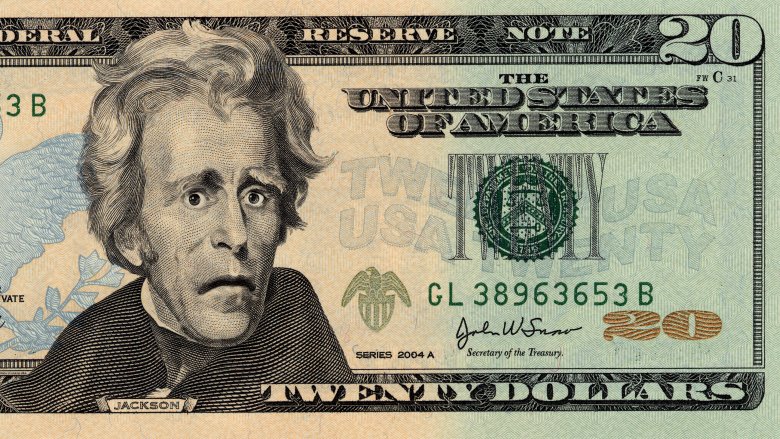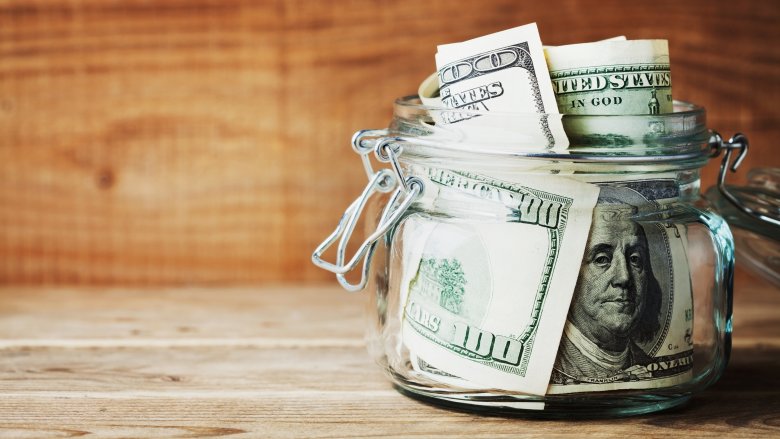Signs You Have An Unhealthy Relationship With Money
How do you feel about money? Do you enjoy looking at your bank account or do you avoid it like the plague? When you think about your financial situation, do you feel confidence or guilt? Everyone has a relationship with money and while some people treat their money like a trusted friend, others view it with guilt, fear, and frustration.
Are you wondering if you have an unhealthy relationship with money? I went to some of the experts to find out signs that you need to change your relationship with money ASAP.
You keep ending up in the same financial situation
Brandon R. Redman, managing partner at Securian Advisors Northwest told me that one of the first signs that your relationship with money is on the rocks is if you keep ending up in the same financial situation, or worse, despite trying to change it through means like debt consolidation.
If that's the case, Redman said, "It's not a money issue, it's a behavioral issue. While the relief of being temporarily debt free, or cash-flow positive was great, it didn't translate into forced savings. Instead, it translated to the same behaviors that led to the problem in the first place."
You avoid planning for the future
Another sign that you need to check your relationship with money is if you're not taking a longterm view of your finances. Clint Thomas, cofounder of Integrity Wealth Solutions and certified financial planner, told me, "People can always come up with excuses of why not to plan: I don't have money now, I'll figure it out later, someone else will do it for me, or it's too overwhelming." This kind of procrastination won't get you anywhere.
Redman agreed. He told me it's not a good sign if "when faced with retirement savings options at work, your response is, I'm too young to worry about that now. I want to live my life and have fun while I can. I can save for retirement later." However, he added, "The power of compound interest is significant, and the financial impact of waiting for one, two, three years isn't something you can make up. Start saving today, even if it's a little bit. You can still live your life, but you'll be so much better off."
Thomas noted that sometimes people avoid budgeting because "it can seem too overwhelming and frankly, not fun. Some people like to stay intentionally ignorant. But staying on top of your finances and having a plan can be very liberating and make life much happier."
You have no consistent money strategies
Redman told me you may have an unhealthy relationship with money if "you have no consistent strategies... anywhere" for paying off your debt. He continued, "Whether it's investing for retirement, building up savings, or paying off debt, each month seems to have a different approach and a different priority" when there isn't a plan in place.
He added that you should pay attention to what you're doing and create a more consistent plan. He told me, "Shuffling funds from one account to another, addressing one money fire and then the next, won't get you as far as a consistent, well-thought-out plan would."
You feel powerless when it comes to money
Do you ever feel like you have no power over your finances? That's another sign that you and money need some relationship counseling. Rebecca Brown, certified money coach told me, "Feeling powerless can show up in patterns of avoidance or sticking one's head in the sand. It also presents itself as feeling apathetic, without any desire to face your money situation."
She added, "When an individual feels powerless they are operating from the 'Innocent' or the 'Victim' money archetype. They may blame their money challenges on external forces or they may operate from a place of fear or unwillingness to face their present money reality."
If you feel powerless about money, know that it's just your perception, and not reality. You can create a plan to improve your finances moving forward. Once you realize changes are in your power, you will be able to move forward and forge a more positive relationship with money.
You feel fearful about money
Another emotion that often comes up with regards to money is fear, according to Brown. She told me, "Oftentimes [the fear is] because there is a lack of knowledge around their true money situation. It can also be a chronic fear of 'never enough-ness' or a fear that financial calamity is just around the corner."
It's dangerous to come from a place of fear with your finances. Brown continued, "When operating from a place of fear, individuals avoid stepping into their power and taking control of their money situation. They are unable to enjoy the abundant life that may be right in front of them because they are focused on their fears instead of on the real, present moment in front of them."
You spend more than you earn
Do you, like many Americans, spend more than you earn, amassing lots of credit card debt? If so, it's time to make a change. Thomas told me you may have an unhealthy relationship with money if "you're living a lifestyle you can't afford — if you are constantly trying to keep up with the Joneses, not saving, and putting everything on credit then it creates a very unhealthy relationship because you can never have enough."
These behaviors lead down a financial road you don't want to take. Thomas continued, "This lifestyle typically leads to being in major debt which is extremely difficult to get out of. Living at or below your means allows you to save for your future and be happy that you aren't burying yourself in debt."
You don't use money to enjoy your life
On the flip side, hoarding your money is also detrimental. Thomas explained, "If you hoard money and material things and are so frugal that you don't enjoy life and the experiences it has to offer, it's unhealthy." He went on to say that we shouldn't accumulate money just for "the sake of accumulating money." He explained, "You need to take advantage of the hard work that you do and enjoy life. Reward yourself with experiences or things or donating to charity and other community projects."
So if you're someone who has plenty of money, but holding on to it out of fear, let yourself live a little. Your money should help you enjoy your life.
You feel conflicted about money
Whether you believe that money is the root of all evil or, conversely, that money is the answer to all your problems, making judgments about money is also a sign that you and money need to repair your relationship.
Brown told me, "Money is ultimately neither good or bad. Sometimes people feel conflicted about money either on the giving end or on the receiving end as they grapple with this idea of good money and bad money. They have a love/hate relationship with money which can cause them to repel the very thing they are trying to attract."
Instead of viewing money as good or bad, see it for what it is — a tool that can help you achieve what you want in your life.








